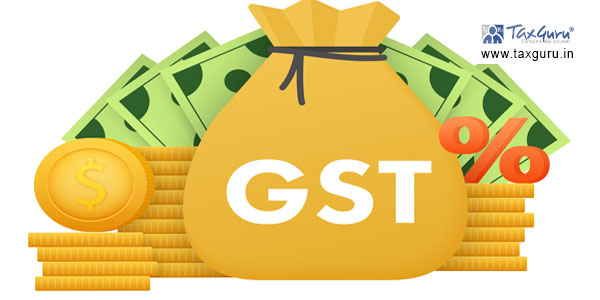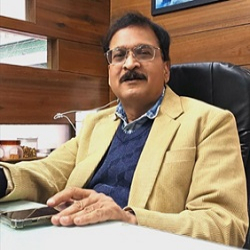Goods and Service Tax is introduced in India in 2017 and now more than 5 years have already passed but still the Trade and Industry is not very comfortable with it even after continuous efforts of the GST Council and Finance Ministry .
Let us have a look at the required steps which will convert the Goods and Service Tax in a very simple and user friendly system of Indirect Taxation.
1. GST is a becoming supplier based tax and all the information supplied by the suppliers are the base of taxation and this is only becoming one way affair though this was not the system as envisaged when concept of GST was first introduced. The recipient does not have any opportunity even to inform to the department from whom he has purchased goods. ITC and restricting the ITC is only based on the information is furnished by the Suppliers and in that case if a supplier even after selling the goods has not shown it or not paid the tax collected from the buyer and at present in that case even before knowing this fact the Department is withholding the ITC of the buyer.
This is a very big problem and the solution of this problem is to allow the Buyers to show their details of the purchasers. This was there in the original scheme of the GST and it should be implemented to do away the agony of the innocent and law-abiding buyers.
The details submitted by the suppliers and the recipients should be matched and mismatch should be posted both in the accounts of supplier and recipient and if the recipient has proved that his purchases are genuine and tax has been paid by him to the supplier then the missing tax should be collected from the supplier instead of blocking the Input credit of the buyer.
2. Flawless ITC was the basic of GST when it was introduced but in the last 5 years ITC is becoming the key problem in doing the The is a provision that Goods and Service Tax in Section 16(4) of the Central Goods and Service Tax Act 2017 and according to it after a certain date a dealer can not claim ITC for a particular Financial Year. At present this date is 30th Nov of the year succeeding the Financial Year. But this date is not a practical date. In most of the cases the mistakes are being discovered when the Annual return is filed and this date of ITC restriction should be carried over till the filing of Annual return by the dealer. If dealer is filing annual return after due date then he is paying the late fees hence in that case his ITC should not be restricted due to these provision because once the tax is received then ITC should be the right of the Buyer.
See here the Government has already received the tax and if it is paid late then Interest was also recovered from the supplier so it will not affect the revenue negatively in any way.
3. RCM was introduced on very wide field at the time of introduction of the GST in India but it was considered as impracticable provision hence within four years it was removed from the major field but still specific RCM is still there in the law. Here the RCM means , in most of the cases, pay the RCM and get the ITC of the same immediately hence it has no effect as far as the revenue of Government is concerned. See in that case it is only a technical formality but in some cases dealers were failed to do the formality of showing the RCM in his returns though they has paid full tax. An amnesty should be there to absolve these dealers.
4. The GST was introduced in India as a biggest tax reform but the formalities and procedures were very much tough in the beginning and still simplification is not there. Lot of innocent Mistakes were done by the dealers and now they are receiving lot of notices which in turn will convert into litigation . All the mistakes are not evasion of tax but in most of the cases these are innocent and technical mistakes. Instead of burdening them to reply plethora of individual notices , the matter should be settled with the Amnesty Scheme so that they can inform these mistakes to the department in a systematic way .
RCM, Section 16(4) etc should be the part of the Amnesty Scheme and It should also be noted here that in the Last Amnesty scheme Composition dealers were left from this scheme without any reason. A special relief should also be included in this Amnesty Scheme.
5. In case of Dealers whose investment in the Fixed Assets like Plant and Machinery is too high and in that case their credit balance of ITC is too high and since they are purchasing raw material and services from Registered dealers hence, they took very long years to settle this ITC which is blocking their working capital. A proper scheme or provision should be there to give some relief to these dealers to release their working capital blocked in the ITC.
6. The GST is council is there to make some decision and advising the Government to make provisions with respect to GST . As per the advice of the GST Council Sec 49(10) was amended via Finance Act, to transfer Tax, Int. etc. from ‘Cash Ledger’ of Reg. Person to Cash Ledger of Distinct Person (GSTIN with same PAN). It is Notified on 5th Jul 22 via N No. 09/2022, but still facility has not been made available on Portal. So much delay on the portal facility is creating so much problem for the Genuine dealers needing it .

7. The decision of the GST council should be implemented ASAP but in this case the decision was implemented by the Government but the practically due to want of facility at GST Network it is still not started.
The rate of interest under GST is 18% which is very high considering the facts that Bank rate is now not too high. The rate of interest for delayed payment of the GST should be more than 2% over and above Bank Loan rate. The rate of 18% is fixed when the Bank loan rate was too high but now when Bank rate is not so high then this rate of 18% is too high and require downward revision.
8. The process of establishment of Appellate tribunal should fastened . Since the introduction of GST in July 2017, taxpayers have been dealing with interpretational and technical challenges resulting in protracted litigation with respect to GST laws. In the absence of GST Appellate Tribunals, taxpayers have often been invoking writ jurisdiction to seek relief from High Courts but this is not possible for all the Taxpayers . Given the pendency of matters, the constitution of the GST Appellate Tribunal (GSTAT) has been much awaited Now.
9. The number of Amendments , Circulars and clarifications are too much and it has made the whole scheme of the Act too much complicated . A special expert committee should be appointed to revisit all the provisions of the Law to make the GST Law now more compact instead of making changes in it and it’s procedures again and again. Now 5 years have already passed but still stability is missing which is must for the success of GST in India and making it user friendly.
10. It is observed during the Last one year that Number of Notices issued by the GST authorities is increasing and this number is much more than the earlier Indirect Tax system . This was not envisaged when GST was introduced to do away the shortcomings of the Indirect tax system which was replaced by the GST in the name of biggest reform. The human intervention is too much in disposal of these notices. It is required to visit the whole system and the relevant procedures to minimise this problem .
11. The SOP for Registration should be issued ASAP because the documents and queries being asked for registration are verifying from place to place and further the time taken is also not the same at every place. Some times absurd queries and unrelated documents are being asked for registration. A Standard operating system should be introduced to solve this problem.
12. In case of E-invoicing ,if the copy of e-invoice is not saved/lost then there is no option to get the copy of the said E-invoice (i.e. with IRN and QR Code), post 3 days of generation of the same on E-Invoice portal. There shall be no limitation on retrieval of such critical document on which ITC of recipient is dependent.
13. E-way bill provisions across the nation needs to be streamlined in terms of value, distance, intra-city etc. barring certain exceptions but at present the exceptions are too much in lot of states. Penalty needs to be rationalized in e-way bill related defaults, especially validity expiry cases, minor mistake in name of address etc, which does not result into revenue loss. Detailed guidelines need to be issued as to when section 129 and 130 can be invoked. The E-way Limits can be set in a single mode just like this Example (illustrative and suggestive) :-
| S.No. | Type of Supply | Amount |
| 1. | Within the same city | RS. 2 Lakhs |
| 2. | Within the same state | Rs. 1 Lakhs |
| 3. | Inter-state Supply | Rs. 50000.00 |
Here the problem is that when dealer having single PAN has Registrations in more than one state then there is higher probability of mistakes when limits are different in all the states.
Sudhir Halakhandi – Sudhirhalakhandi@gmial.com






At present Private Hostels and PGs are not defined anywhere. As per Karnataka HC decision in case no. WP 14891 of 2020 , decided on 7.2.2022 , Hostels and PGs are treated as “Residential Dwelling”.
Accordingly they should be not only declared but defined also as Residential Dwelling by Central Govt. and State Govts.
J P Dubey
Mb. 9425102171